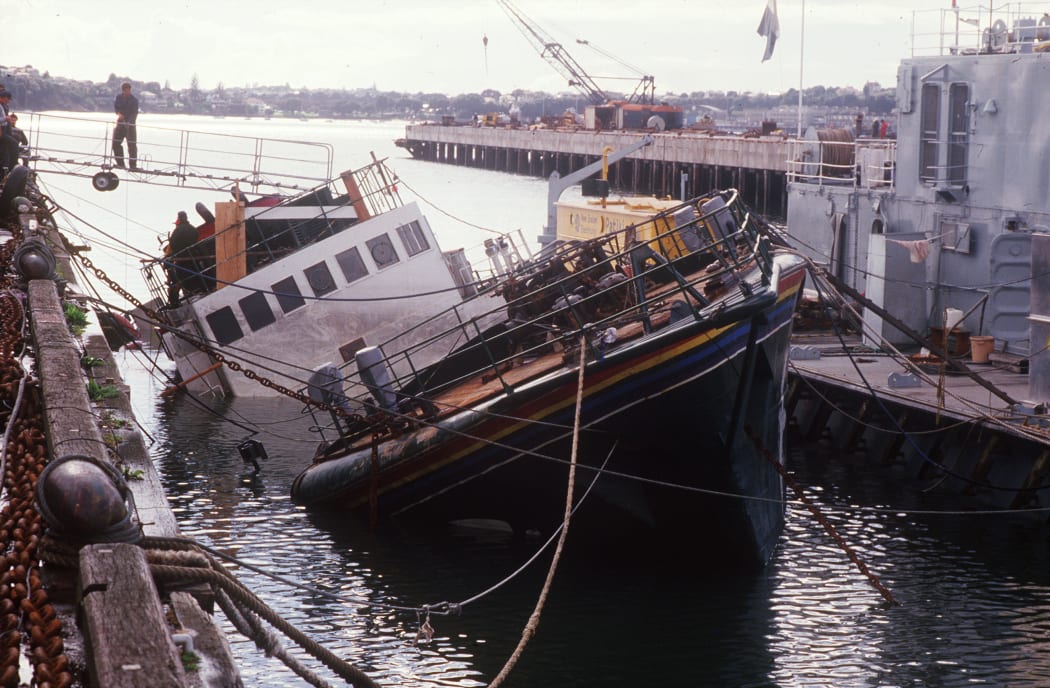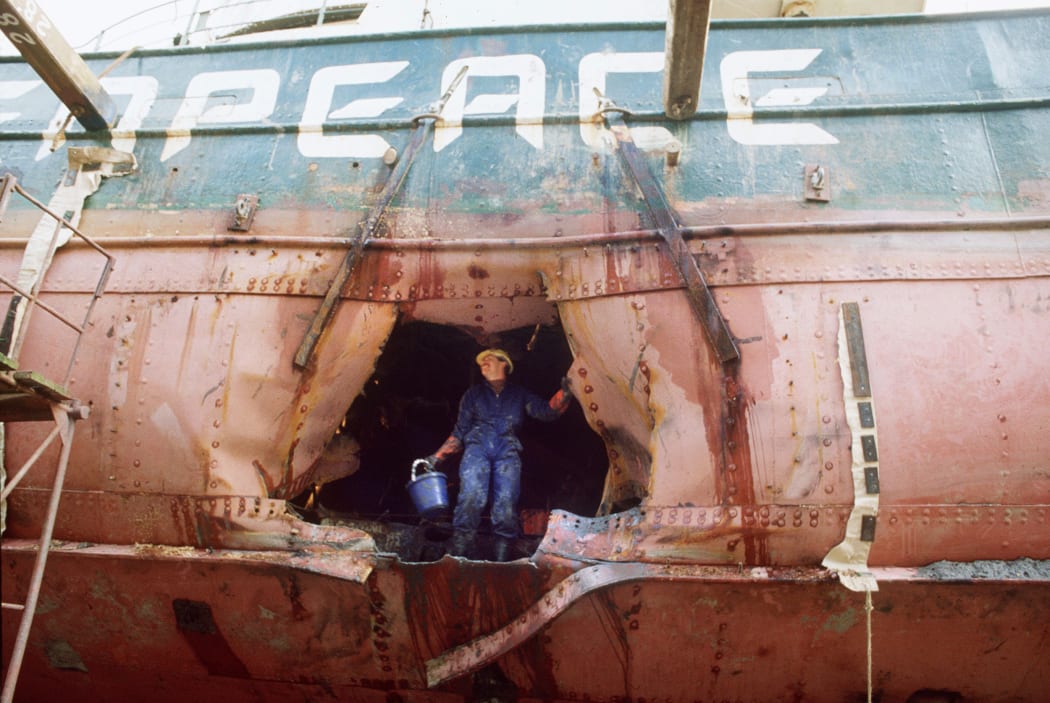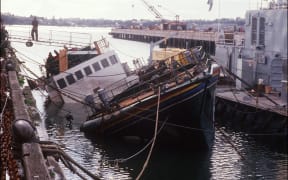Crew members of the Rainbow Warrior and police detectives who investigated the bombing of the ship are among those commemorating the 30th anniversary of the sinking today.

Photo: AFP
On July 10, 1985, French spies detonated two mines attached to the side of the Greenpeace protest ship as she sat in dock at Auckland's Marsden Wharf.
The ship sank within minutes, drowning Greenpeace photographer Fernando Pereira, and sparking years of outrage at the French government's actions.
Among the ship's activist crew was Bunny McDiarmid, then a young deckhand but now the outgoing director of Greenpeace New Zealand.
The crew had spent about nine months together by the time they docked in Auckland, and thought of the Rainbow Warrior as home, Ms McDiarmid said.
"I can remember a lot about the Warrior - I can remember the feel of her wooden decks under my feet, I can still remember the smell of the tar on really hot days."
The night of the bombing, Ms McDiarmid had been on board for a birthday party for another crew member, before leaving at about 10pm to stay at her parents' house.
"Martini Gotje, who was the first mate on board, called us at my parent's place just near two or three o'clock in the morning to tell us what had happened and also that Fernando was missing," she said.
She headed straight to the wharf.
"It wasn't really until we saw the Warrior lying on her side against the wharf that we really believed or understood what had happened."

The bombed hull of the Rainbow Warrior. Photo: AFP
By later that morning, Greenpeace suspected foul play - and, as an unidentified member of crew told Radio New Zealand at the time, disbelief among the crew turned to anger.
"Somebody blew up our boat. They ripped her guts out and killed one of our crew. I feel as if someone had ripped out some of my guts in the process, and I and the rest of Greenpeace will not rest until she or her successor is sailing again," the crew member said.
It didn't take long for the police to link the sinking to the French, after arresting two agents, Dominique Prieur and Alain Mafart, just two days after the bombing.
Rebecca Hayter who had a pivotal role in the arrest of two French agents involved said her memories of the event were still clear.
She first encountered Alain Mafart and Dominique Prieur before the bombing, when they were trying to arrange a replacement for a camper van with a broken windscreen.
She said she thought it was strange when Mafart refused to leave the vehicle as they waited for a mechanic.
"I just remembered he wouldn't leave it, you know like normally someone would sit in the waiting room and have a cup of coffee but he was very definitely staying with the vehicle and very definitely did not want any help moving gear from one van to the other and I just remember thinking it was odd."
When the couple returned the campervan after the bombing, Rebecca Hayter was able to delay them until police arrived.
France continued to deny any state involvement until late September that year.
Two months later, Prieur and Mafart were sentenced to 10 years' prison for manslaughter - although they served just two years in the end.
Allan Galbraith, who is now retired, was the lead detective in the police investigation into the bombings.
About a dozen other French agents the police identified were never held accountable, Mr Galbraith said.
"It was very frustrating that they'd gone. In fact, all of them except [Prieur and Mafart] had left Auckland, and most of them had left New Zealand, before the detonations had even taken place."
Members of the investigation team would gather today to mark the anniversary with a quiet drink, he said.
"It was an extraordinary incident really, that a friendly power would even consider doing what the French did.
"I still don't really understand their thinking that they could actually do it ... and that they could get away with it."
Bunny McDiarmid said she wanted the anniversary to be a reminder of the importance of activism.
"That connection between activism and acts of courage 30 years ago, and how much that has mattered in New Zealand's history, and has defined what we have done and what we've become as a nation, is really, really important."
Greenpeace will commemorate the day with a photography exhibition, and an activism workshop at Auckland's Cloud on the waterfront - a short walk from the spot where the bombing happened.


